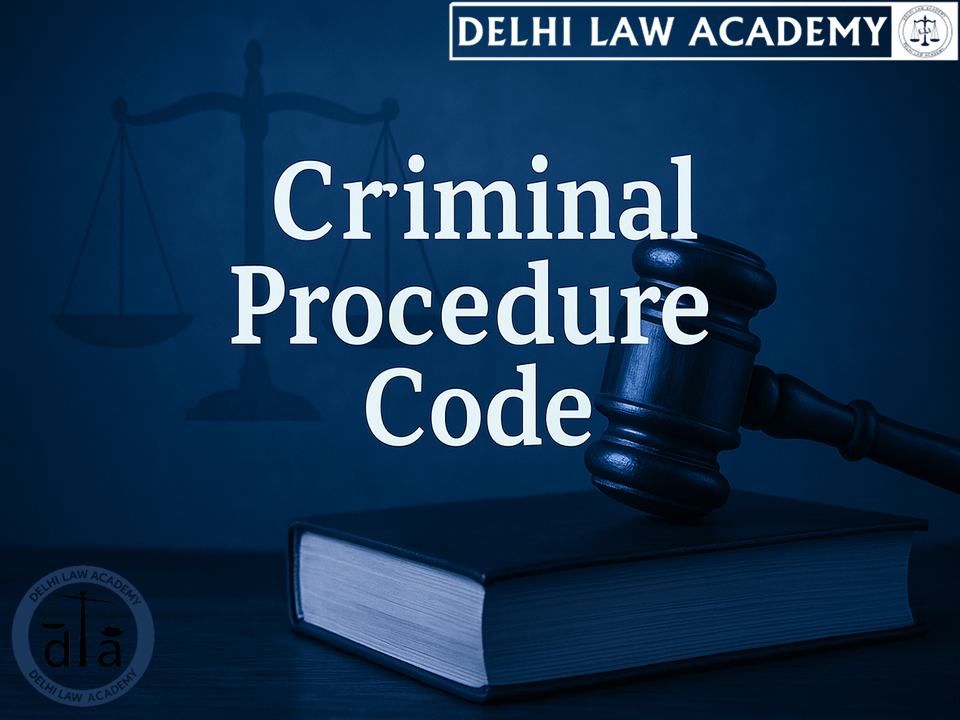
⚖️ INHERENT POWERS OF HIGH COURT & BAR TO TAKING COGNIZANCE
Preparation for RJS, DJS, PCS (J) and other Judicial Service exams
📘 CRIMINAL PROCEDURE CODE EXPLAINED
The following text is presented exactly as provided — formatted only for visual clarity and readability.
INHERENT POWERS OF HIGH COURT BAR TO TAKING COGNIZANCE Preparation for RJS, DJS, PCS (J) and other Judicial Service exams TOPICS • Bar to taking cognizance • The period of limitation • Commencement of limitation • Exclusion of time in certain cases • Date on which Court is closed • Continuing offence • Inherent powers of High Court • Quashing of FIR u/s 482: • Superintendence over Judicial Magistrates Supreme Court judgments discussed in this post: • State of Haryana v. Bhajan Lal [1992 SC] • Moti Lal v. State of MP [1994 SC] • Krishnan v. Krishnaveni [SC 1997] ************** CRIMINAL PROCEDURE CODE EXPLAINED The Criminal Procedure Code forms the bedrock of any and every Judicial Service exam in the country. Its thorough knowledge is a must for all aspirants of RJS, DJS, PCS (J) and every other Judicial Service exam. To help such aspirants, DELHI LAW ACADEMY JAIPUR has launched a series of study material modules on all important aspects of this vital part of their syllabus: *************** Section 468(1) Bar to taking cognizance • No Court shall take cognizance – of an offence of a specified category – after expiry of the period of limitation • Section 468(2) The period of limitation shall be • six months – if the offence is punishable with fine only • one year – if the offence is punishable with imprisonment upto one year • three years – if the offence is punishable with imprisonment upto three years • Period of limitation – for offences tried together • shall be determined – by the offence punishable with the more severe punishment Section 469 Commencement of limitation Period of limitation shall commence • on the date of offence • on the first day – on which the offence comes to knowledge of the person aggrieved or police officer • on the first day – on which identity of the offender is known to the person aggrieved or police officer – In computing this period: • the day – from which such period is to be computed – shall be excluded Section 470(1) Exclusion of time in certain cases • In computing the period of limitation: • the time – during which any person has been prosecuting another prosecution against the offender – with due diligence – whether in a Court of first instance or in a Court of appeal or revision • shall be excluded Section 470(4) In computing the period of limitation • the time during which the offender – has been absent from India – has avoided arrest by absconding or concealing himself • shall be excluded Section 471 Date on which Court is closed • Where the period of limitation expires – on a day when the Court is closed • Court may take cognizance – on the day on which it reopens Section 472 Continuing offence • In case of a continuing offence: • a fresh period of limitation shall begin to run – at every moment of time during which the offence continues ****************** Section 482 Inherent powers of High Court • Nothing in this Code shall be deemed – to limit or affect the inherent powers of a High Court • to make – such orders as may be necessary – to give effect to any order under this Code – to prevent abuse of the process of any Court – to secure the ends of justice The Law on section 482: Moti Lal v. State of MP [1994 SC] • The inherent power of the High Court cannot be exercised to review an earlier order passed by the High Court since the power of review is expressly barred ... u/S 362 Cr.P.C. • However, plain words of section 482 indicate that Sec. 482 will have primacy over any other provision in Cr.P.C. and can, therefore, override even Section 362. • Of course, in a given case whether the High Court should review its own earlier order by resort to Section 482 should be left to the discretion of the High Court depending on the facts and circumstances of the case. • The question: • Despite the bar of second revision u/s 397(3), is the inherent power of High Court still available u/s 482? Krishnan v. Krishnaveni [SC 1997] • Ordinarily, when revision has been barred by section 397(3), a person cannot be allowed to take recourse to the inherent powers u/s 482 since it may amount to circumvention of section 397(3). • A High Court has suo motu power u/s 401 and continuous supervisory jurisdiction u/s 483. • So, when the High Court on examination of record finds that there is abuse of the process of courts or non-compliance of statutory procedure or failure of justice or where the order or sentence by the Magistrate requires correction, it is but the duty of the High Court to have it corrected at the inception lest grave miscarriage of justice would ensue. • The High Court would be justified, under such circumstances, to exercise the inherent power and in an appropriate case even the revisional power u/s 401. Quashing of FIR u/s 482: State of Haryana v. Bhajan Lal [1992 SC] • The inherent power to quash the proceedings at the initial stage can be exercised…. • where allegations made in the FIR do not prima facie disclose the commission of any offence, even if taken at their face value and accepted in their entirety... • where allegations in the FIR and other materials accompanying the F.I.R. do not disclose a cognizable offence justifying an investigation by police officers u/s 156(1) of the Code... • where allegations made in the FIR or complaint are so absurd and inherently improbable that on their basis no prudent person can ever reach a just conclusion that there is sufficient ground for proceeding against the accused... • where a criminal proceeding is manifestly attended with mala fide or where the proceeding is maliciously instituted with an ulterior motive for wreaking vengeance on the accused and with a view to spite him due to private and personal grudge. • Courts subordinate to the High Court have no inherent power u/s 482 Cr.P.C. or otherwise. • Mithabhai Pashabhai Patel v. State of Gujarat 2009 SC Section 483 Superintendence over Judicial Magistrates • A High Court – shall so exercise its superintendence over Courts of Judicial Magistrates • as to ensure – that there is expeditious and proper disposal of cases by such Magistrates
📚 For complete CrPC notes, visit Delhi Law Academy
💬 FAQs — Bar to Taking Cognizance & Inherent Powers under CrPC
Answers to common long-tail searches related to Sections 468–483 of the CrPC — including limitation, quashing of FIR, and the inherent powers of the High Court under Section 482. Designed for RJS, DJS & PCS(J) aspirants.
It means that once the period of limitation — six months, one year, or three years (depending on the gravity of the offence) — expires, the court cannot initiate proceedings for that offence.
Search phrase: “meaning of bar to taking cognizance section 468 crpc explained”
- 📅 From the date of offence
- 👁️ From the first day the aggrieved person or police learns about the offence
- 🕵️ From the day the identity of the offender becomes known
The day of commencement is excluded from computation.
Search phrase: “how to calculate limitation period under section 469 crpc”
- ⏱️ Time spent in bona fide prosecution of another case against the same offender
- ✈️ Period when the accused was outside India or absconding
- 🚪 Time when the court was closed (Section 471)
These ensure justice is not defeated by procedural delays.
Search phrase: “exceptions under section 470 471 crpc limitation period”
- ✅ Give effect to any order under the Code
- 🚫 Prevent abuse of the process of court
- ⚖️ Secure the ends of justice
This power is extraordinary and used sparingly — as affirmed in Moti Lal v. State of MP (1994) and Krishnan v. Krishnaveni (1997).
Search phrase: “inherent powers of high court section 482 crpc scope and limits”
- 🔹 Allegations don’t disclose any offence, even if true
- 🔹 Allegations are absurd or inherently improbable
- 🔹 Proceedings are maliciously instituted to harass the accused
This power ensures that innocent persons are not dragged into unjust proceedings.
Search phrase: “grounds for quashing fir under section 482 crpc bhajan lal case summary”
This ensures judicial efficiency, accountability, and fairness in subordinate courts.
Search phrase: “section 483 crpc supervision over magistrates explained”
📚 For full CrPC notes and study materials, visit Delhi Law Academy
📘 Free Study Material for Judiciary Aspirants!
Download our FREE study material prepared by Delhi Law Academy’s expert faculty.
Contact us
📍 Delhi Law Academy – Jaipur Branch
6C, Tower 2, Coaching Hub, Pratap Nagar, Jaipur – 302033
📞 Phone:
+91 9911916552
+91 8447285606
✉️ Email:
contactus@delhilawacademy.com

